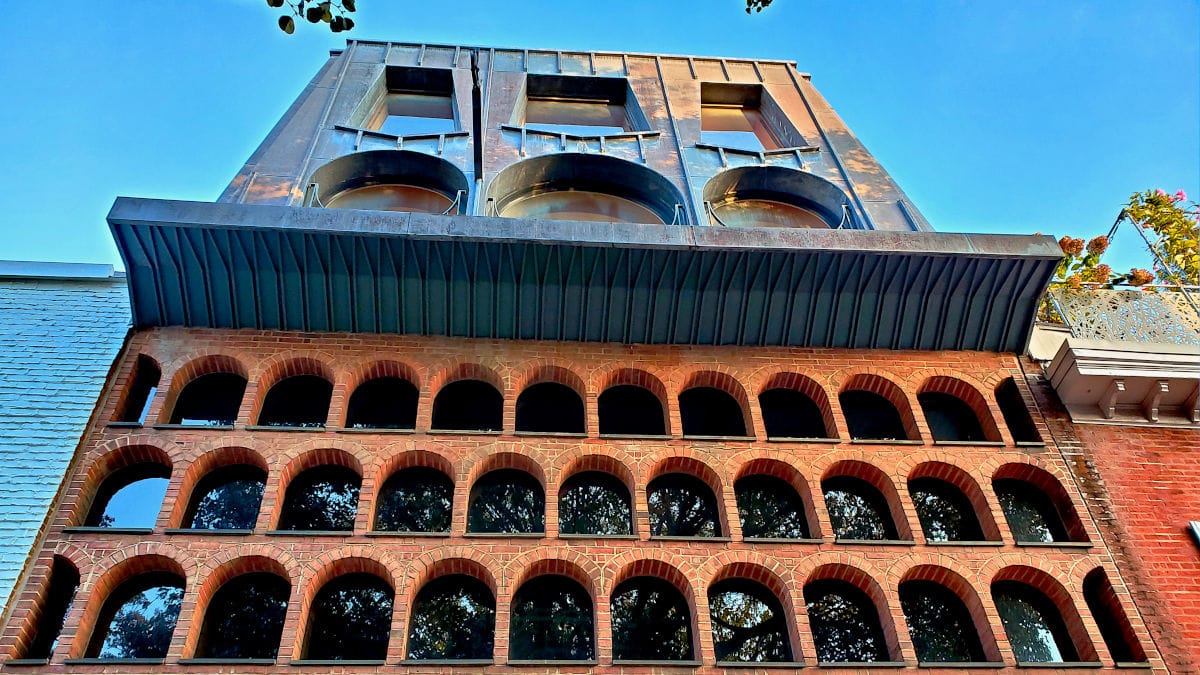It happens all the time: someone comes to us because the City of Philadelphia told them to get new permits just to keep their property the way it was. Say, for example, someone purchased a triplex, but when they applied for a rental license – trying to follow the rules! – the Department of Licenses and Inspections told them no, sorry, that’s not actually a triplex; and you need a half-dozen new permits to make it a triplex. In this circumstance, the buyer usually comes to us brandishing a Real Estate Sales Certificate – better known as a property certificate. And the property cert usually says “Triplex” in clear print. How, the buyer asks us, could this property be anything other than a triplex when the official property cert says it’s a triplex?
The answer, which nobody wants to hear, is that Philadelphia property certificates don’t mean anything.
Now, they sure look official: they look like they mean something. And they almost do: they tell you how an old building might have been used in decades past, or how some local officials might have assumed the building was used. They even – often correctly! – list a building’s code violations. But they don’t reliably tell you how the building is permitted under current zoning laws, or how the City of Philadelphia establishes a canonical zoning record in the first place. And they definitely don’t tell you how the building code might affect your plans for the site.
I know, I know: this seems made up. There’s an official City of Philadelphia web page explaining how to get a property certificate. The page says a property cert “provides the property’s zoning classification, last established use in the zoning record, and disclosure of uncorrected violations of the housing, building, safety, and fire ordinances.” And what I’m saying is that property certs do not do this. To be a little more precise: Philly property certs aren’t always wrong, but they’re wrong or misleading so often that they can’t be trusted. Broken clocks are right twice a day, but you don’t use them to tell time. (You use your phone, but just go with me here.)
So why do we have property certs? And how does anyone determine the real zoning status of their property?
Why do we even have Property Certificates in Philly?
Property certificates aren’t a Philadelphia invention: they’re a Commonwealth of Pennsylvania requirement buried in PA Code Title 21.
Pennsylvania laws are hilariously difficult to track, because they weren’t organized by subject until the 1970s, except that some laws still aren’t organized by topic, and just sort of drift in the legislative ether. This is why P.L. (Pamphlet Law) 400, No. 89 is also somehow Title 21 P.S. (Pennsylvania Statutes) Sections 611-615 – but not Title 21 in the Pennsylvania Consolidated Statutes, where Title 21 is reserved. Got it?
I don’t really either, but this is how it goes with PA laws. The upshot is that this thing is the active law, and it is mostly called PA 21 P.S. § 611-615, and it says:
- People are using their property in ways not allowed by local zoning codes! We have to stop this!
- … but we suppose it would be terrible to buy a house only to find out it’s in violation of zoning law
- Awesome new plan: it’s fully illegal to sell real estate unless you give the buyer a special certificate showing the legal use of the real estate, the local zoning rules, and any violations of those rules
- Oh, also, we the Commonwealth think this is hard work, so the cities and towns and boroughs or whatever have to come up with their own versions of the certificate. This is the law now!
So that’s pretty much it: since 1976, every property seller in PA must give a property cert to their buyer, and every municipality must create the certificate at the seller’s request. How the town delivers the certificate is up to the town. These days, Philadelphia offers property certs through an unassuming online portal: you pay the fee, you get the cert, and the certificate tells you some information that may or may not be accurate or relevant.
Why Philadelphia Property Certificates don’t mean anything
So that’s why Philly offers a property certificate. The obvious next question is: why isn’t a property certificate from the City of Philadelphia the final word on permit records in Philadelphia?
This answer is simpler: I don’t know!
… but that answer is also unsatisfying. So how about this: I may not be sure how the City of Philadelphia arrived at its current property certification process, but I do know why the process doesn’t work. Let’s start there:
The PA law says a property certificate must indicate “the zoning classification and the legality of the existing use of the property to be sold,” and disclose “whether there exists any notice of an uncorrected violation of the housing, building, safety or fire ordinances.” (There’s an extra Philadelphia law [9-308] that says the property cert must also list some local license requirements.)
It’s possible to provide a document that tells you all this information based on cursory research. And if the research is cursory enough, it can produce misleading or false information.
As an example, let’s go back to our triplex: if a building was used as a triplex in decades past, and some City of Philadelphia document identifies it as a triplex, L&I staff can say the last recorded use is a triplex. However, to keep a building a triplex, Philadelphia law and Licenses and Inspections rules demand zoning and building permits recorded and completed in a certain way – and that way depends on the time in which the permits were acquired.
Previous owners of our triplex may have started a zoning application which appears in the record – but never finished it. Or they may have obtained a zoning permit, but let that permit expire before obtaining related construction permits. They may have left the building vacant for a spell, or failed to obtain rental licenses to legally register the triplex. For one reason or another, old applications and permits can lapse; and when they do, a new permit is always required.
“Okay, whatever,” you shrug: “Why doesn’t L&I just find the last completed zoning permit and ignore the expired stuff?”
They try! But zoning files for old properties are often incomplete, out of order, or filled with illegible handwriting. They can also be really dense: large properties in Philly can have permit records over a thousand pages long. And sometimes, even in smaller records, important documents are missing: lost forever before digital scanning existed, or hiding in hard copy somewhere in the central L&I offices or at a district outpost. Plus, it’s just about impossible to tell from a single old zoning permit whether all the paperwork to certify building code compliance was ever completed.
“Okay tough guy,” you sneer (weirdly aggressive of you, frankly): “Why don’t they dig a little deeper? Why don’t they make sure the first zoning permit they see is still valid?”
Again, I don’t know for sure. But my guess is: because deciphering permit records can be super hard!

Zoning rules are complicated, and overlay districts make them even more complicated. To understand an old property’s zoning status, you need to hold a map of regulations in your mind, and chart each document you find on that atlas. It’s simply not reasonable for a city to expect all of its employees to develop that sort of expertise, or to expect the few employees with that expertise to spend hours on each request for a property certificate.
Instead, the city can fulfill its duty under Pennsylvania law by directing staff to check easily available zoning records, find whatever PDF seems to be the latest zoning permit, and print the property cert along with some boilerplate language about licensing. Sometimes the resulting certificate accurately describes property status. Sometimes it doesn’t. Sometimes it’s right about the zoning, but doesn’t flag other requirements for construction or legal occupancy.
And if you don’t believe that last bit, the City of Philadelphia’s latest bulletin on Property Certification says it outright:
The certification is based solely upon L&I zoning and violation records and does not certify that the property complies with all zoning, building, safety, property maintenance, fire codes, any other ordinances, or Commonwealth statutes.
In other words: the property certificate doesn’t certify anything. It’s based on zoning and violation records in the way The Patriot is based on the American Revolution. You have to go elsewhere for the facts.
How to Determine the Actual Property Record
Since the property cert can’t be trusted, how can you tell how your property is actually permitted? How can you figure out if you need any more permits to keep – or make – a building legal in the eyes of Billy Penn?
Simple: you call Permit Philly.
This next part I’m supposed to say, “All joking aside…” but it’s not a quip! We really do have the expertise to determine the exact status of your property in Philly. We can not only dig up a property’s actual, current zoning permissions, but explain what types of future construction or renovation are legal – or likely to get special approval, if not automatically allowed. Whenever a record gets murky, we can ask L&I officials – the ones who make and interpret the rules – how to read the terrain. And when we’re done with the research and reports, we can go ahead and get you whatever permit or license you need.
The other option, of course, is to do your own research. And if you do, we’ll start you off with one piece of free advice: If you’re lucky enough to be selling property, give your buyer a property certificate – the law demands it. Otherwise, ignore Philly property certificates altogether.

